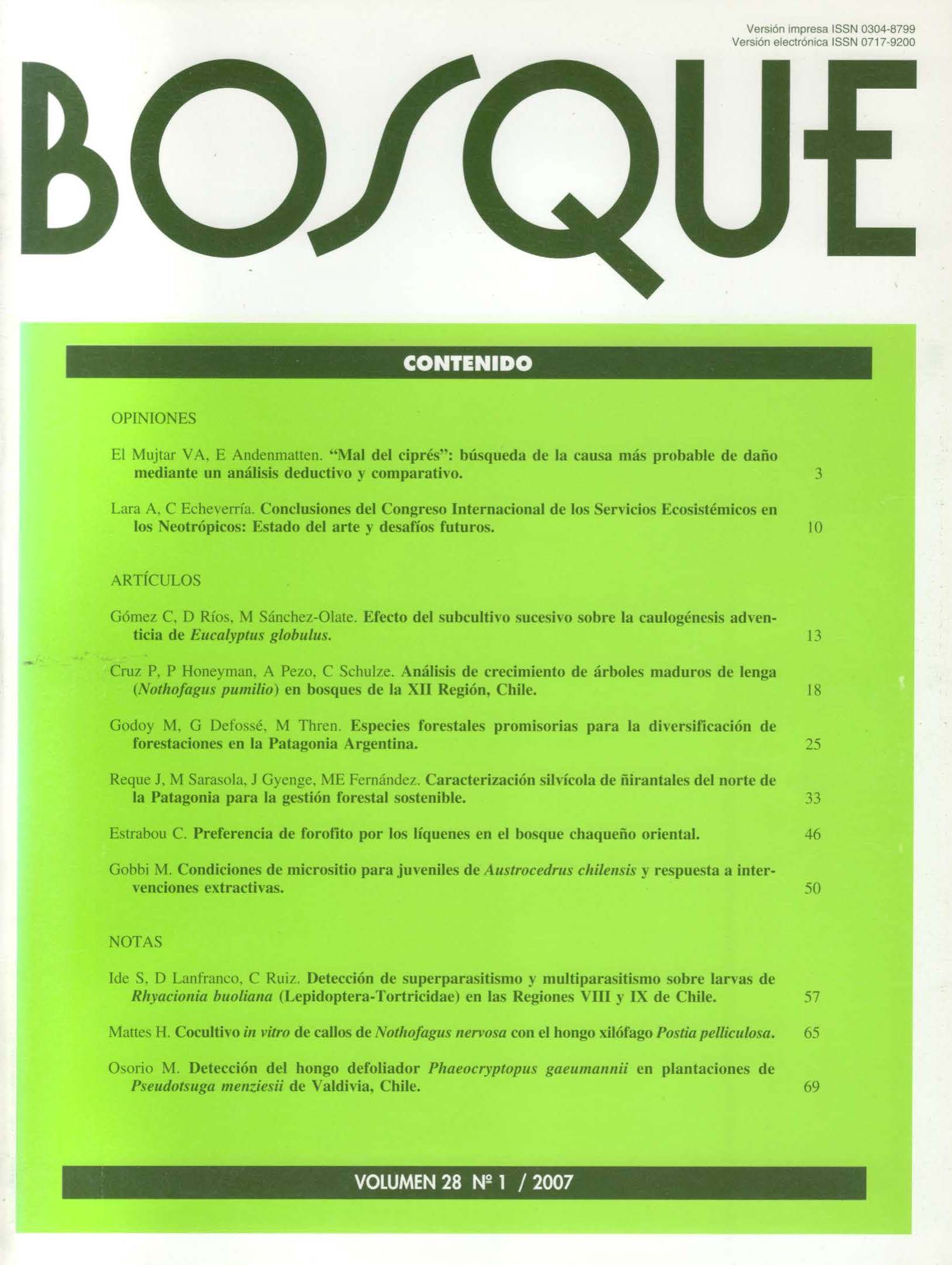Main Article Content
Apr 30, 2007
Abstract
During 2000 and 2001 a sampling period in five forest localities of the Bio-Bio (VIII Region) and Malleco provinces (IX Region) of Chile was carried out. Population density of the pine shoot moth Rhyacionia buoliana was determined with a fluctuation between 19 and 207 mean number of larvae per tree in the first year of evaluation and 6.4 to 137 during 2001. The parasitism over larvae by Orgilus obscurator varied between 50% and 80% during the year 2000 and 57% and 96% in the second year. Superparasitism by O. obscurator and multiparasitism by Venturia sp. (Hym.: Ichneumonidae) were detected during both years of parasitism evaluation. Although the data do not reveal that the parasitism of O. obscurator is interfered by other agents; this approach can be changed by new detected native and introduced biocontrollers as it is discussed. To evaluate periodically the program using the same methodology is a good practice for monitoring the control of the pine shoot moth implemented in Chile since 1987.


